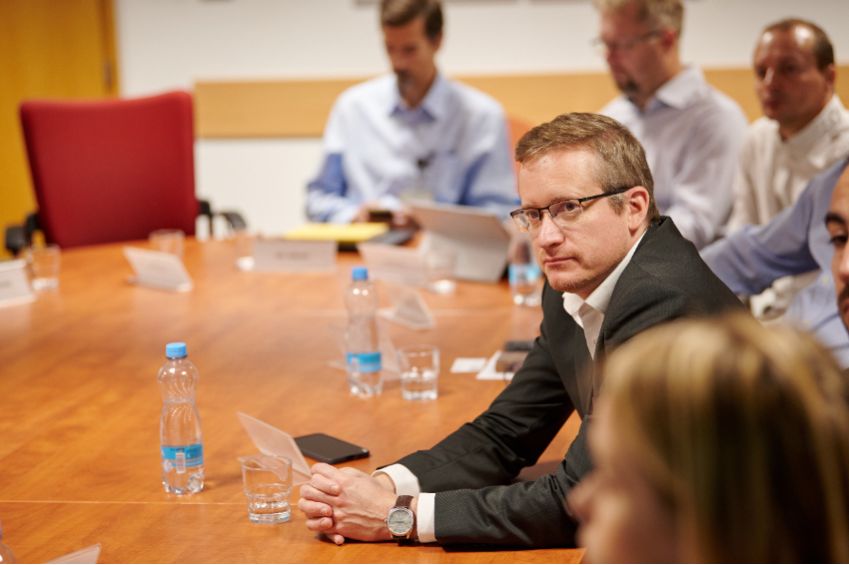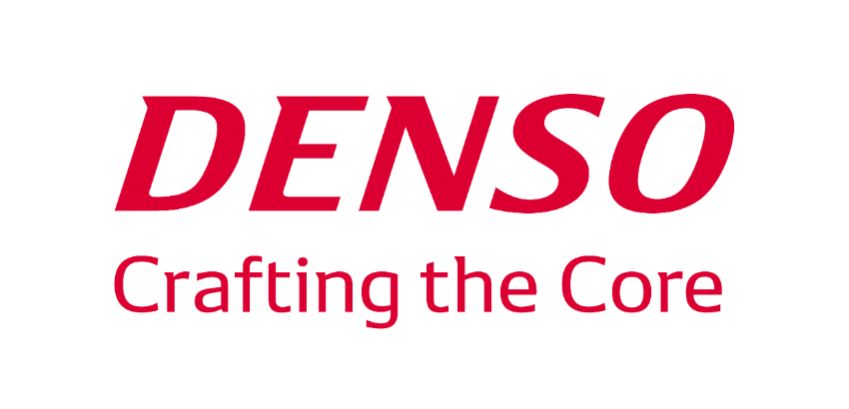The challenge of climate change is simply too big for any one organisation, institution, or industry to tackle alone. It requires dialogue and joint action shared between those who set the policy framework and those who are responsible for delivering it.
To help establish open and trusted dialogue, DENSO International Europe recently brought together members of their senior leadership team to meet with MEP Ondřej Kovařík of Renew Europe at their Czech plant. It enabled Kovařík to see firsthand how DENSO is implementing change and to highlight areas where further joint action is needed.
“Legislation cannot be theoretical,” MEP Kovařík told The Parliament before stepping out onto the factory floor at DENSO’s Czech plant, one of its largest manufacturing facilities in Europe. “It is impossible for me to draft good legislation without understanding what is happening on the ground.”
Understanding the process by which legislation turns into action is a cornerstone of effective policy. Kovařík believes such learning is essential if regulation is to address the challenges that Europe faces as it transitions to a low-carbon future.
“I will never be responsible for compliance with the rules,” Kovařík told Takahiro Kawamoto, Vice President of DENSO International Europe and other members of the company’s senior team. “It is DENSO. The rules can only work if they are developed with a clear understanding of the practical realities on the ground. Legislation that is not implemented is not good legislation.”
The visit provided a timely opportunity to listen and learn. European policymakers like Kovařík are currently finalising the drafts of critical legislation and regulation that will support the net-zero transition. But it is in factories across Europe where those political aspirations will be translated into action.
It is impossible for me to draft good legislation without understanding what is happening on the ground.
- MEP Ondřej Kovařík (Renew, CZ)
However, achieving those common aims is much more about cooperation than compliance. As Kawamoto explained, the central vision of a cleaner, safer, healthier, and more prosperous Europe is one that DENSO shares fully with Brussels policymakers. He regards DENSO not just as an implementer of policy, but also as a business with the vision, expertise, and the resources necessary to act as a key strategic partner in shaping and sustaining positive transformation.
“Society is changing and DENSO recognises that,” Kawamoto explains. “We need to develop solutions that contribute to society, support local communities, and reduce carbon emissions, while strengthening our business. DENSO has a long history of technological solutions that have significantly impacted the automotive industry. We believe that innovative, future-oriented solutions guided by our Great Causes of “Green” and “Peace of Mind”, will be crucial in driving progress in mobility and society.”
MEP Kovařík heard about the impressive progress that is already being made to save energy, cut carbon, and produce the new technologies that will enable other businesses to do the same. DENSO’s Czech plant has worked in close partnership with Liberec for over two decades and is supporting it to become the only climate-neutral city in Czechia. Tomas Svagerka, from DENSO’s EU Production Innovation Centre, explained how energy efficiency at the plant has improved by 35% over the past 3 years, delivering a reduction of 3746 tons of CO2 last year alone.
The company’s ambition extends much further, with recent innovations capturing heat from the manufacturing process and using it to provide clean energy for the entire plant. A range of other measures are not only reducing emissions for DENSO but also leading to the development of technologies that can potentially enable other businesses to do the same.
Significant progress is being made to reduce emissions, not due to the external imposition of legislative requirements but because DENSO has fully committed to an organisation-wide strategic approach that responds to the challenges of global warming, resource scarcity, and rapid social change.
However, Vice President Kawamoto cautions that if businesses like DENSO are to plan and invest effectively to achieve shared goals, then there must be policy certainty, a stable operating environment, and long-term clarity that can unlock business investment.
“We expect changes and we prepare for them,” he explained to MEP Kovařík. “But the key thing that helps us to do that is certainty. That allows us to plan ahead and make sure that our future investments are in balance.”
MEP Kovařík shares Kawamoto’s view that collaboration and partnership are key to achieving successful outcomes. He is equally clear that the vital task of anticipating and planning for a better and cleaner future is one that everyone has a part to play in delivering.

One live example that powerfully demonstrates the way that dialogue can help shape effective delivery is the critical issue of Euro 7. This is a regulation that will set a maximum emissions standard from new vehicles (ICE & BEVs) sold in Europe. MEP Kovařík (shadow rapporteur Euro 7) was keen to hear from DENSO International Europe’s team about the steps the business is already taking and to pinpoint practical challenges that may lie ahead.
Euro 7 is just one example of policy where close collaboration and dialogue can deliver policy that improves air quality, slashes carbon emissions, and ultimately benefits European citizens. For Kovařík, the most effective policy is always informed by a granular understanding of the steps that companies like DENSO are already taking on the factory floor to deliver Europe’s shared goals. Indeed, he believes that the forward-thinking steps DENSO itself is undertaking provides a valuable resource for policymakers and legislators who are also seeking solutions.
“Every time you make a decision, you are trying to predict the future and fit your business model into it,” he explains. “As policymakers, we also need to be forward-looking. So, your long-term thinking is something that it is always useful for us to know.”
Ultimately, the principal theme that emerged during the visit was that strong and effective policy is built on relationships. And critically, those relationships must always be underpinned by trust and openness. It is a message that Kovařík emphasised at the conclusion of the day, encouraging DENSO’s senior representatives to be clear about what they need to succeed.
“Today was a great experience. Sometimes it is not bad to remind people like me that you are our shareholders. We would not exist without your taxes,” he told them. “It is important to be vocal and clear about what you expect from public policy in the next 10 to 20 years.”
The dialogue established during the visit provides a strong starting point for further learning and collaboration. It creates a foundation to shape better, more effective regulation, unlocking the potential for private and public sector partners to work together to deliver a cleaner future for the European Union.
In partnership with

This article was produced in partnership with DENSO.
Sign up to The Parliament's weekly newsletter
Every Friday our editorial team goes behind the headlines to offer insight and analysis on the key stories driving the EU agenda. Subscribe for free here.